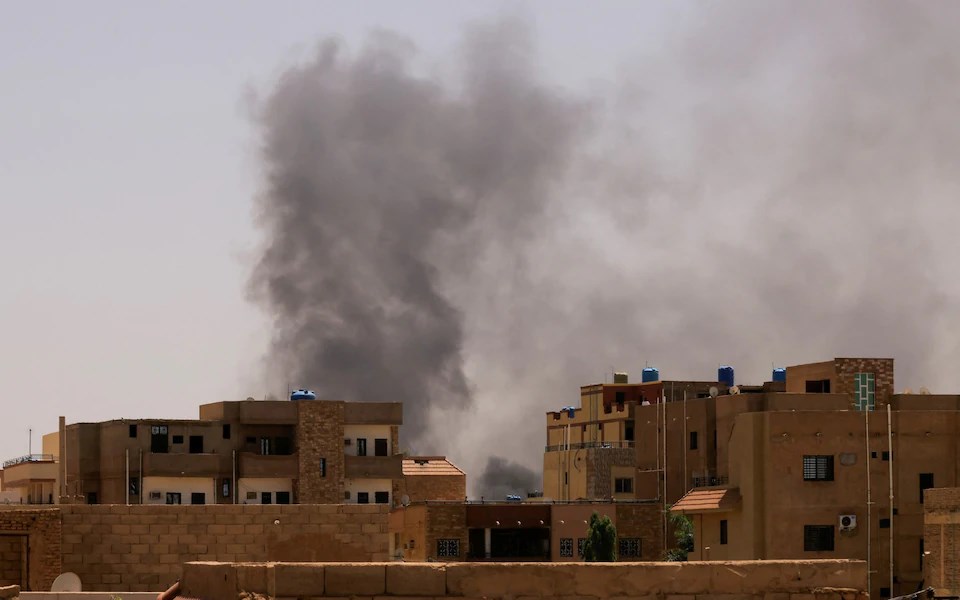WHO warns of 'huge biological risk' after Sudan fighters seize lab
There is no mention of which faction took control of the lab.
-

Smoke comes out of a building in Khartoum following clashes between rival generals (Reuters)
The World Health Organization described on Tuesday the situation in Sudan as "extremely, extremely dangerous" because fighters have taken control of a national public laboratory in Sudan that contains samples of diseases, most notably polio and measles.
Fighters "kicked out all the technicians from the lab... which is completely under the control of one of the fighting parties as a military base," said Nima Saeed Abid, the WHO's representative in Sudan.
The representative did not mention which faction had taken control of the lab.
In further detail, Abid said he received a call from the head of the national lab in Khartoum on Monday, a day before a 72-hour ceasefire between Sudan's general rivals officially came into effect after 10 days of clashes.
"There is a huge biological risk associated with the occupation of the central public health lab," said Abid.
He emphasized that the lab held so-called isolates, or samples, of various deadly diseases, most notably measles, polio, and cholera.
The UN health agency added that it has verified 14 attacks on medical facilities during the battle, which resulted in eight fatalities and two injuries.
It further warned that "depleting stocks of blood bags risk spoiling due to lack of power."
"In addition to chemical hazards, bio-risk hazards are also very high due to lack of functioning generators," Abid said.
The Sudanese Health Ministry put the number of deaths so far at 459, with a further 4,072 wounded, the WHO said Tuesday, stressing it had not been able to confirm that number.
A crisis within a crisis
Thousands of people have already fled the violence, according to the UN refugee agency, and up to 270,000 more could follow them into the neighboring countries of South Sudan and Chad.
According to UNHCR, there are currently no estimates for the number of people fleeing to neighboring nations.
Laura Lo Castro, the agency's representative in Chad, stated that some 20,000 refugees had arrived there since the clashes began 10 days ago.
Addressing reporters in Geneva via video link, she said the UNHCR forecasted up to 100,000 "in the worst-case scenario."
Her colleague in South Sudan, Marie-Helene Verney, said that around 4,000 of the more than 800,000 South Sudanese refugees living in Sudan had returned home since the fighting began.
She added that "the most likely scenario is 125,000 returns of South Sudanese refugees into South Sudan."
Up to 45,000 Sudanese are expected to flee as refugees into South Sudan, as per Verney.
Jens Laerke, the spokesperson for the UN humanitarian agency, said the clashes had led to "acute shortages of food, water, medicines, and fuel, and limited communications and electricity."
"The people of Sudan, already deeply affected by humanitarian needs, are staring into the abyss," Laerke added.
Read next: Sudan on 'the edge of the abyss': UN chief

 3 Min Read
3 Min Read








